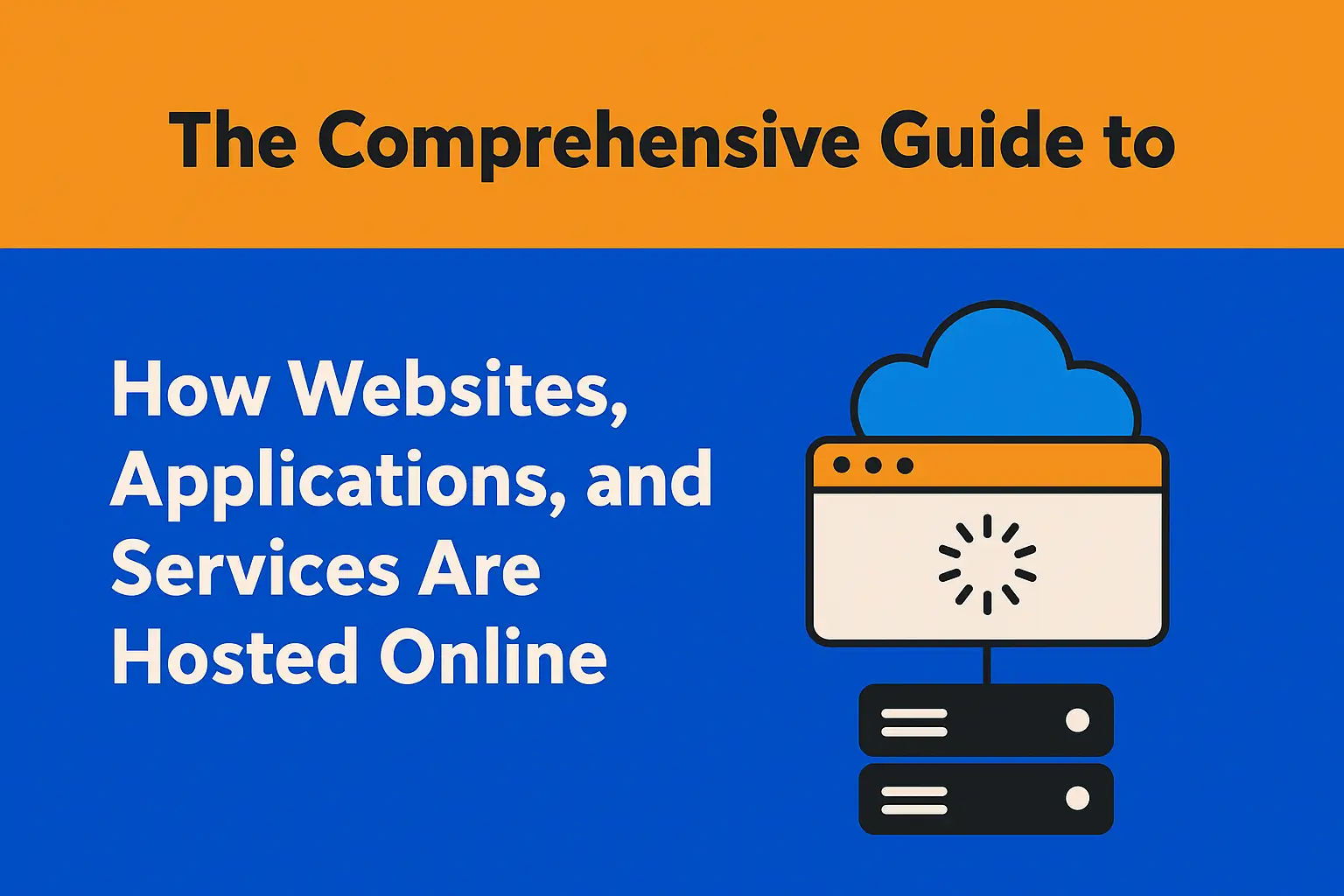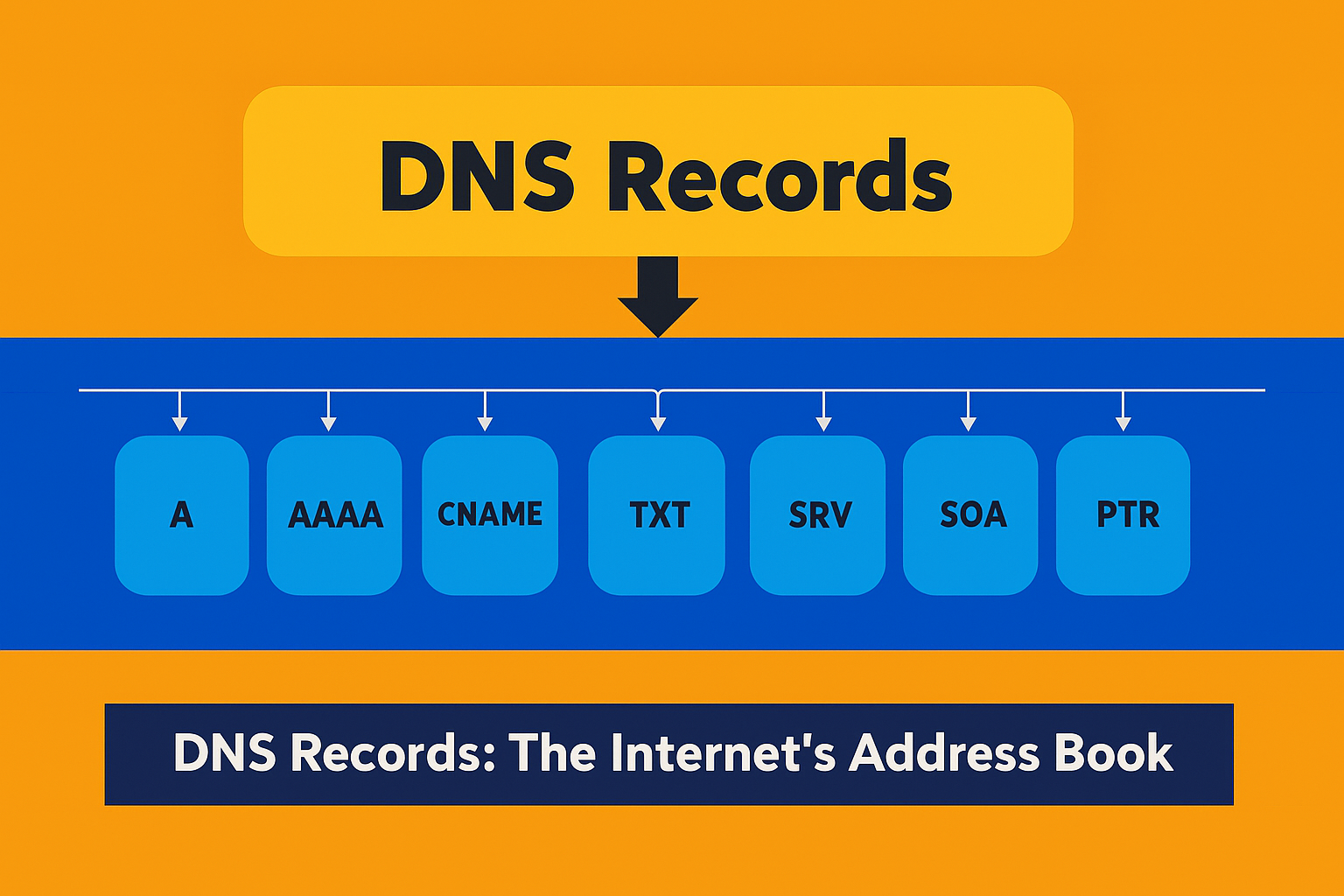
Introduction to Web Hosting
Web hosting is a fundamental component of the online ecosystem, serving as the backbone that allows websites to be accessible on the internet. At its core, web hosting involves storing a website’s files on a server, which is a powerful computer designed to handle significant amounts of traffic. This server is connected to the internet, enabling users from around the globe to access the website at any time. Whether you’re running a small blog, a corporate site, or an eCommerce platform, choosing the right type of web hosting is crucial for ensuring smooth and reliable access for your users.
Understanding the importance of web hosting lies in recognizing its role in website performance, security, and uptime. A website that experiences frequent downtime or slow load times can quickly lose visitors, impacting user experience and, potentially, revenue. Hence, selecting an appropriate web hosting service that aligns with your website’s needs is essential.
There are several types of web hosting available, each catering to different requirements and budgets. The most commonly used options include shared hosting, Virtual Private Server (VPS) hosting, dedicated hosting, and cloud hosting. Shared hosting is often considered the most economical option, suitable for small websites with limited traffic. VPS hosting offers more control and resources than shared hosting by partitioning a single server into multiple virtual servers. Dedicated hosting provides an entire server exclusively for one website, ensuring maximum performance and security. Meanwhile, cloud hosting leverages multiple servers to balance loads and maximize uptime, making it an excellent choice for websites with fluctuating traffic.
In the sections that follow, we will delve into each of these web hosting types in detail, outlining their features, advantages, and potential drawbacks. This comprehensive examination will equip you with the knowledge to make an informed decision about the best web hosting option for your specific needs.
Shared Hosting
Shared hosting is one of the most popular web hosting options, particularly favored by individuals and small businesses due to its cost-effectiveness and ease of use. In a shared hosting environment, multiple websites are hosted on a single server, sharing its resources such as CPU, RAM, and bandwidth. This pooling of resources allows hosting providers to offer their services at a lower cost, making it an affordable entry point for those who are just beginning their online presence.
One of the primary benefits of shared hosting is its affordability. Because server costs are distributed among multiple users, monthly fees are typically much lower compared to other hosting options. This makes shared hosting an excellent choice for personal blogs, small business websites, and other simple online projects that don’t require extensive resources.
Besides being budget-friendly, shared hosting is also easy to use. Most providers offer user-friendly control panels like cPanel, which simplify website management tasks such as setting up email accounts, managing domains, and installing applications. This convenience makes shared hosting suitable for users with limited technical expertise.
However, shared hosting does come with certain limitations. Since resources are shared among multiple websites, high traffic or resource-intensive activities on one site can impact the performance of others on the same server. Furthermore, users have limited control over server settings, which may not suit websites with specialized needs.
Typical scenarios where shared hosting shines include hosting personal blogs, portfolio sites, and small business websites with moderate traffic. It is not ideal for high-traffic websites or those with strict performance requirements, like large e-commerce stores or extensive web applications.
Notable providers of shared hosting plans include Bluehost, HostGator, and SiteGround. These providers often bundle in essential features such as free SSL certificates, one-click WordPress installations, and customer support, enhancing the overall value proposition of shared hosting plans. Features like these contribute significantly to the appeal and practicality of shared hosting, making it an attractive choice for many website owners.
Virtual Private Server (VPS) Hosting
Virtual Private Server (VPS) hosting serves as a bridge between shared hosting and dedicated hosting, offering users a middle ground. Unlike shared hosting, where multiple websites coexist on the same server and share resources, VPS hosting involves partitioning a single server into several virtual compartments. Each virtual server operates independently, with dedicated resources allocated to each user.
Due to this separation, VPS hosting provides improved control, scalability, and performance compared to shared hosting. Users have root access to their server environment, enabling greater customization, installation of preferred software, and fine-tuning server settings to suit specific needs. This level of independence is a significant advantage for businesses seeking more robust solutions without the costs associated with dedicated servers.
One of the primary benefits of VPS hosting is scalability. As your website grows, you can easily adjust your resources, such as CPU, RAM, and storage, without affecting other users. This flexibility is ideal for medium-sized business websites or online stores that experience consistent traffic growth or variable demand. Improved performance is another hallmark of VPS hosting, as dedicated resources mean fewer bottlenecks and faster loading times.
However, the increased control and customization of VPS hosting typically require a higher level of technical knowledge. Users must be familiar with server management, command-line interfaces, and basic networking concepts. For those with the requisite skills or access to technical support, VPS hosting can be a powerful solution.
Common use cases for VPS hosting include hosting eCommerce websites, business websites with high traffic volumes, and applications requiring dedicated resources. Some of the popular VPS hosting providers include DigitalOcean, Linode, and Vultr. Common features of VPS plans usually include SSD storage, scalable resources, automated backups, high performance, and robust security measures. By offering a balanced blend of performance, control, and cost, VPS hosting is an attractive option for many website owners.
Dedicated Hosting
Dedicated hosting is a powerful web hosting solution that involves leasing an entire physical server solely for your website or business needs. This type of hosting provides unparalleled control, performance, and reliability compared to other hosting options. Since you are not sharing server resources with any other users, dedicated hosting enables optimal website performance, making it an ideal choice for large businesses and high-traffic websites that demand robust and consistent resource allocations.
One of the primary benefits of dedicated hosting is complete control over the server environment. This includes the ability to customize hardware and software configurations, enhance security measures, and install any operating systems or applications tailored to specific business needs. With full root access, businesses can optimize the server settings, manage their data, and ensure a secure hosting environment. Additionally, dedicated hosting often comes with better uptime and faster load times, which are critical for user experience and search engine rankings.
Given its high-performance capabilities, dedicated hosting is best suited for websites with significant traffic volumes, such as e-commerce platforms, large-scale enterprises, and media websites requiring extensive storage, bandwidth, and processing power. These organizations benefit from the scalability and reliability that dedicated servers offer, ensuring their websites remain operational and responsive under heavy user loads.
However, dedicated hosting does come with higher costs. The expenses associated with renting an entire server and the technical expertise required to manage and maintain it can be substantial. Organizations may need to employ skilled IT staff or third-party management services to ensure seamless server operation, maintenance, and security. This additional investment is often justified by the enhanced performance and security benefits received.
Several leading providers in the dedicated hosting market include names like Bluehost, SiteGround, and Liquid Web. Typical features of dedicated hosting plans from these providers include robust hardware configurations, 24/7 customer support, advanced security options, and comprehensive control panel access. When choosing dedicated hosting, it is essential to consider the specific needs and goals of your website to make an informed decision that optimizes performance and reliability.
Cloud Hosting
Cloud hosting represents a departure from traditional hosting types by leveraging distributed resources to enhance flexibility, scalability, and reliability. Unlike conventional hosting that relies on a single server, cloud hosting utilizes a network of connected servers to distribute data and resources. This approach ensures minimal downtime and robust data redundancy, making it an indispensable solution for modern web hosting needs.
One of the significant advantages of cloud hosting is its remarkable scalability. Traditional hosting solutions often struggle to handle unexpected traffic spikes, potentially leading to website slowdowns or crashes. In contrast, cloud hosting dynamically allocates resources across its server network, ensuring seamless performance even during high traffic volumes. This makes it an ideal choice for a broad spectrum of website types, from burgeoning startups to rapidly growing enterprises.
Cloud hosting is also renowned for its reliability. By distributing data across multiple servers, it minimizes the risk of data loss and downtime. Should one server experience issues, others seamlessly compensate, ensuring continuous availability and enhanced data security. This redundancy is particularly beneficial for businesses that require constant online presence and cannot afford disruptions.
Prominent cloud hosting providers such as Amazon Web Services (AWS), Google Cloud Platform (GCP), and Microsoft Azure are leading the industry with their comprehensive suite of features. These platforms offer robust tools for resource management, automated scaling, and extensive security measures. AWS, for instance, provides a range of services that cater to diverse needs, from simple hosting solutions to complex cloud architectures. Similarly, GCP and Azure offer advanced analytics tools, machine learning capabilities, and seamless integration with other services, ensuring that users can tailor their hosting environments to precise requirements.
In essence, the dynamic nature of cloud hosting, coupled with its flexibility and reliability, positions it as a superior option for various applications. Whether for a fledgling startup, a high-traffic news site, or a complex enterprise application, cloud hosting offers a robust, scalable solution that can grow with your business needs.
Managed Hosting
Managed hosting is a hosting solution where the service provider takes on the responsibility of managing the server infrastructure, freeing up the customer from having to handle these technical tasks. This service typically includes comprehensive server maintenance, robust security measures, regular data backups, software updates, and often, 24/7 technical support. The hosting company ensures that the servers operate efficiently and remain secure, allowing clients to focus on their primary business operations rather than the complexities of server management.
For businesses that lack the technical expertise to manage their own servers, managed hosting is a compelling option. It prevents the need to hire specialized IT staff or invest time and resources into server management. This is particularly advantageous for start-ups, small to medium-sized businesses, and any organization that prefers to allocate their resources towards growth and development rather than IT infrastructure. For instance, e-commerce platforms and online stores heavily benefit from managed hosting because they can focus on improving user experience and scaling their business while the hosting provider ensures site reliability and security.
Industries that handle sensitive data, such as healthcare and finance, are also prime candidates for managed hosting, as the stringent security and compliance measures provided by hosting companies address the critical need for safeguarding confidential information. Additionally, educational institutions and non-profit organizations often opt for managed hosting to concentrate on their core missions without the distraction of technical server issues.
Several renowned managed hosting providers excel in offering these services. Companies like WP Engine, SiteGround, and Liquid Web are popular choices, known for their focus on client support, scalable solutions, and robust security protocols. Typical features included in managed hosting plans are automated backups, malware scanning and removal, server performance monitoring, and customer support tailored to various technical proficiencies. With such plans, businesses gain peace of mind knowing that their hosting environment is well-maintained and secure, allowing them to direct their energy towards achieving their strategic objectives.
WordPress Hosting
WordPress hosting is a specialized type of web hosting service tailored specifically for WordPress websites. It is designed to enhance the overall performance, security, and reliability of websites using the WordPress platform. This hosting option comes with server configurations and resources that are optimized to meet the unique requirements of WordPress, ensuring a smoother and more efficient operation.
One of the chief advantages of WordPress hosting lies in its superior performance. With servers finely tuned for WordPress’s architecture, websites experience faster loading times and reduced downtime. Speed is a critical factor for user experience and SEO, making these performance enhancements invaluable for WordPress sites. Moreover, WordPress hosting often includes caching mechanisms and Content Delivery Network (CDN) services which further boost speed and performance.
Enhanced security is another significant benefit of WordPress hosting. These hosting plans typically offer automatic updates for WordPress core, themes, and plugins, minimizing vulnerabilities and potential security risks. Additionally, WordPress-specific security protocols, such as malware scanning and removal, firewall protection, and regular backups, add layers of protection to safeguard your data and website.
Users opting for WordPress hosting also enjoy specialized support tailored specifically for WordPress. These support teams are usually more skilled in resolving WordPress-related issues quickly and efficiently compared to general hosting support. This level of expertise ensures that any problems encountered with your WordPress website are addressed effectively with minimal downtime.
For those exclusively using WordPress for blogging or business websites, WordPress hosting presents a convenient option. It offers a hassle-free setup, often including pre-installed WordPress, which allows users to focus more on content creation and business operations rather than technical configurations.
Popular WordPress hosting providers include Bluehost, SiteGround, and WP Engine. These providers offer features such as one-click installations, staging environments, automatic backups, and advanced security measures. These tailored features ensure that users get the most out of their hosting plans, providing a robust foundation for their WordPress websites.
Conclusion: Choosing the Right Hosting for Your Needs
Deciding on the most suitable web hosting type for your website is a crucial step that requires careful consideration of your unique circumstances. Each category of web hosting has distinct characteristics, advantages, and limitations that may or may not align with your specific needs. Shared hosting, for instance, offers an economical and straightforward solution for beginners or small websites with low traffic, albeit at the cost of limited resources and reduced performance during traffic surges.
On the other hand, Virtual Private Server (VPS) hosting provides a balanced mix of affordability and performance, making it a favorable choice for websites with moderate traffic and resource demands. It allows for greater customization and control over server settings, which is ideal for users with moderate technical expertise. Conversely, dedicated hosting grants unparalleled performance and full server control, best suited for high-traffic websites and businesses with complex applications and substantial budgets.
Cloud hosting, characterized by its scalability and reliability, is suitable for websites with fluctuating traffic patterns, offering a pay-as-you-go model that is beneficial from both a cost-efficiency and operational standpoint. Managed hosting services, which encompass expert support and maintenance, are valuable for businesses lacking the technical proficiency to manage their own servers, ensuring robust website performance and security.
Ultimately, the choice of web hosting should align with your budget, technical skill level, website requirements, and anticipated traffic. Assessing these factors can help you discern which hosting option will provide the optimal balance of cost, performance, and scalability for your particular scenario. Engaging with hosting providers for personalized advice can further guide your decision-making process, ensuring a well-informed choice.
We encourage you to thoroughly explore different hosting options and consult with professionals if necessary to navigate the complexities of web hosting. Your decision will significantly influence your website’s performance, so taking the time to choose wisely is paramount.





0 Comments